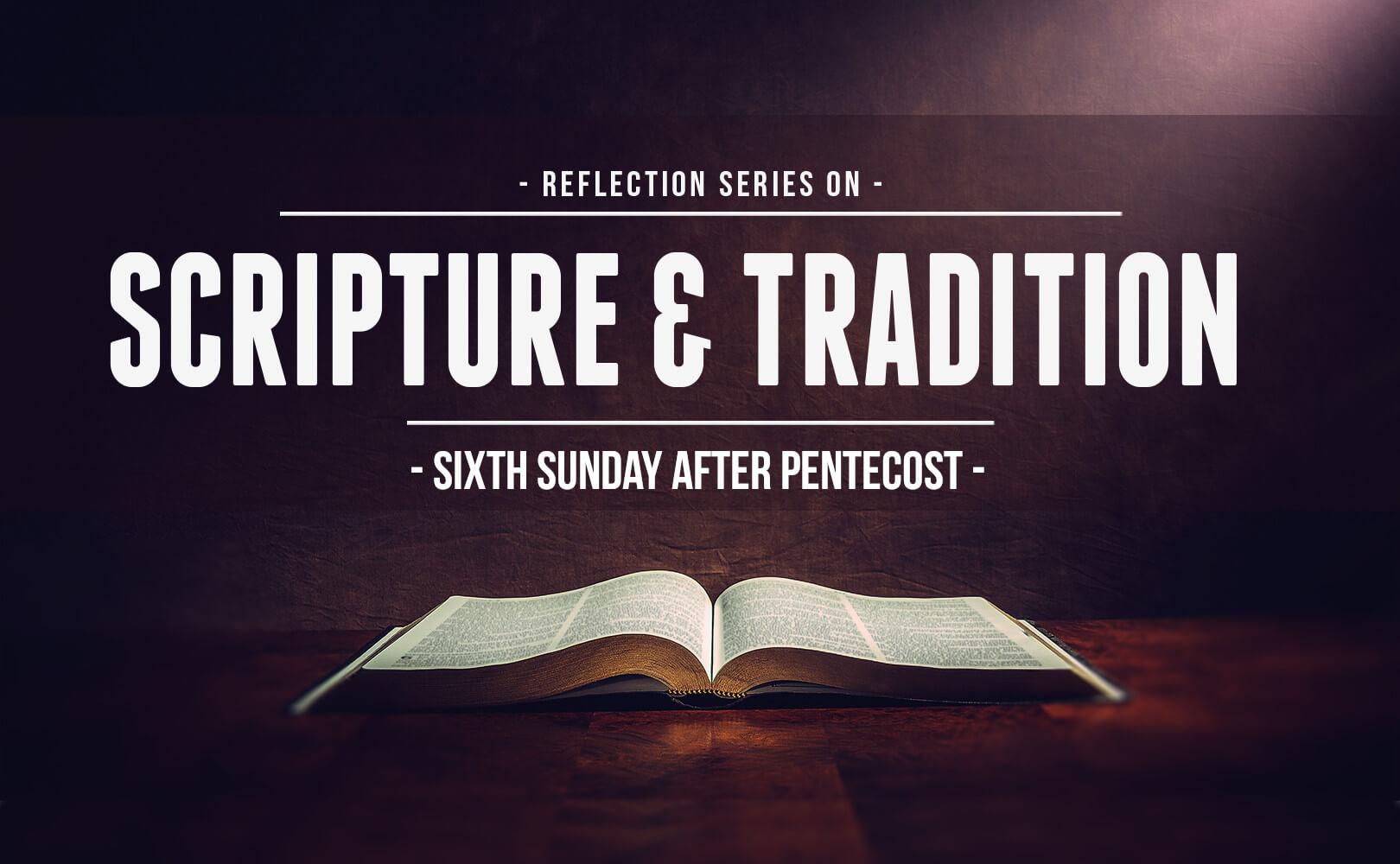Epistle: Romans 6:3-11
Gospel: Mark 8:1-9
O God of hosts, to Whom all that is best belong, graft in our hearts the love of Thy name, and grant us an increase of true religion: that Thou mayest foster what is good, and with tender zeal guard what Thou hast fostered.
– From the Collect for the Sixth Sunday after Pentecost
The collect for Sunday’s Mass asks that God might grant “an increase of true religion.” What is “true religion”? The Catholic Faith, of course. As the Church has perennially taught, extra Ecclesiam nulla salus—outside the Church there is no salvation. It is only in the Catholic Church that we can find the fullness of truth and the way to heaven. In keeping with the focus on “true religion,” Sunday’s readings point to the means by which one is a member of the Church—the Sacraments, particularly the Sacraments of Baptism and Holy Communion.
The Epistle reading for Sunday is St. Paul’s famous discourse on Baptism, found in his Letter to the Romans. The Apostle is tackling the difficult issue of the role of the Law in salvation history: what was the purpose of the Law, since it is obvious it could not keep people from sinning? In fact, the introduction of the Law appears to make sin abound even more in the world (cf. Rom. 5:20).
St. Paul notes, however, that sin only afflicts the living—those who are dead do not sin. As Theodoret of Cyr sarcastically notes, “Whoever saw a dead man sleeping in some harlot’s bed, or bloodying this hands with murder, or doing anything else which is sinful?” (Interpretation of the Letter to the Romans). St. Paul then reminds the Roman Christians that through their Baptism, they are dead—dead to sin through the grace of God. This is not a symbolic death, but a true death that wipes away the stain of Original Sin. As the Council of Trent taught, “If anyone denies that by the grace of our Lord Jesus Christ, which is conferred in baptism, the guilt of original sin is remitted, or even asserts that the whole of that which has the true and proper nature of sin is not taken away, but says that it is only touched in person or is not imputed, let him be anathema” (Session V). This death means we are no longer slaves to sin, but instead have been raised in Christ and are free.
Yet, sadly, although Baptism leaves an indelible mark in our souls, we can return to our former lives of slavery to sin that we had before our Baptisms. We need spiritual sustenance to stay faithful to our Baptismal vows and remain in Christ. Our Lord knows this, and this is why he gives us himself as sustenance in the Blessed Sacrament. Sunday’s Gospel points to his wonderful gift by telling of Christ’s miraculous feeding of the four thousand. St. Mark tells us that even though they only had seven loaves of bread and a few fish, everyone in the crowd ate “and were filled” (Mark 8:8). This is what the Eucharist does for us, when we receive it worthily: it fills us with the Sacramental grace necessary to remain dead to sin and alive in Christ.
How do we achieve an “increase in true religion”? Of course we must pray and evangelize. But most of all we must first put our own houses in order, and there is no better way to do that than to live a Sacramental life, living out our Baptisms and constantly being nourished by Holy Communion.


